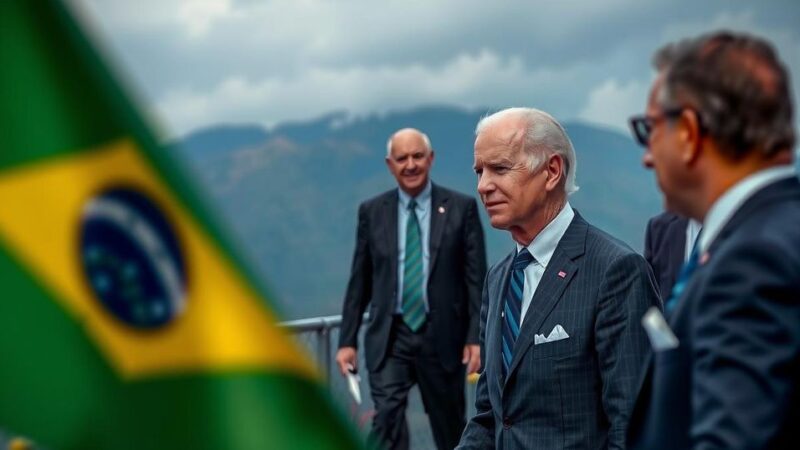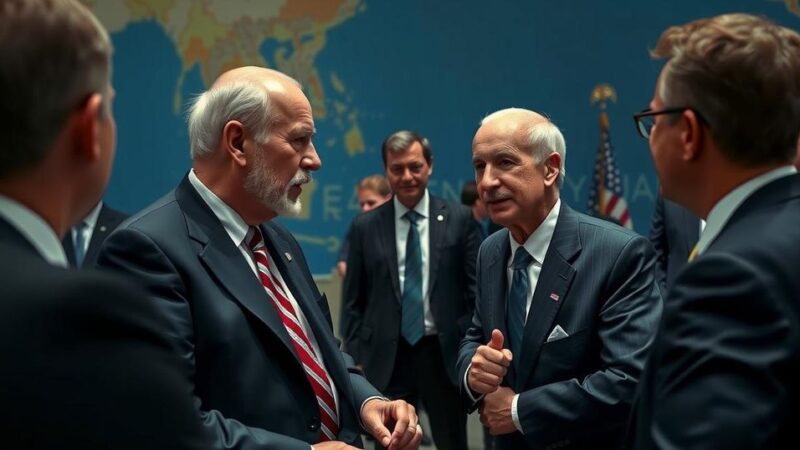Mike Waltz’s appointment as national security advisor by Donald Trump signals a renewed focus on countering China’s aggressive policies while enhancing strategic ties with India. His support for increased U.S. military readiness and defense spending could bolster India’s positioning in its own conflicts with China, marking a promising development in U.S.-India relations. Waltz’s selection showcases a significant pivot in U.S. foreign policy towards prioritizing the Indo-Pacific amid rising global tensions.
Mike Waltz has been appointed as Donald Trump’s national security advisor, a position that signals a strategic pivot in U.S. foreign policy, particularly towards countering threats posed by China. His previous efforts have included advocating for a boycott of the 2022 Winter Olympics in Beijing due to concerns related to the origins of Covid-19 and human rights abuses against the Uighurs. Waltz has consistently emphasized the importance of focusing U.S. military resources towards the Indo-Pacific region amid increasing tensions with China, particularly regarding Taiwan. Waltz’s leadership suggests an intensified commitment to enhancing U.S.-India relations, an essential partnership as India confronts its own challenges with China. As co-head of the India Caucus in Congress, he has shown support for strengthening ties between the two nations. This alignment is crucial, especially with continuing territorial disputes along the Line of Actual Control (LAC) between India and China, where closer defense cooperation could be realized. Furthermore, his extensive military experience and strategic background position him well to advocate for increased defense spending and military readiness in response to growing geopolitical tensions. Waltz has criticized previous foreign policy strategies under President Joe Biden, particularly regarding the withdrawal from Afghanistan, showcasing his preference for a more assertive American military stance. Trump’s selection of Waltz is part of a broader strategic assembly within his administration, indicative of a focus on hard power and competition with rival nations. This approach may cause concerns among NATO allies, given Trump’s past criticisms of the alliance. Nevertheless, for India, Waltz’s ascent to national security advisor presents a significant opportunity for collaboration against mutual threats, particularly as China expands its influence through initiatives like the Belt and Road Initiative and territorial claims in the South China Sea. In the coming months, Waltz is expected to play a pivotal role in shaping U.S. military capabilities in the Indo-Pacific. This may result in a strengthened diplomatic relationship with India and an increased focus on defense collaborations, potentially facilitating new bilateral agreements and joint military exercises. NATO and European allies will need to reassess their strategies as U.S. foreign policy pivots increasingly towards addressing challenges from China.
The appointment of Mike Waltz as national security advisor under Donald Trump marks a strategic shift in U.S. foreign policy, particularly in response to perceived threats from China. Waltz has long advocated for a tougher stance on Chinese aggression and highlighted the necessity of reallocating strategic focus towards the Indo-Pacific region. His military background and previous roles at the Pentagon contribute to a fortified approach towards enhancing the United States’ military position against global rivals, specifically China, while simultaneously seeking to build closer ties with India amid its own geopolitical challenges. The backdrop of strained U.S.-China relations, characterized by trade disputes and military confrontations, further intensifies the relevance of Waltz’s selection, especially as he has shown dedication to military readiness and defense spending. His relationship with India as co-head of the India Caucus aligns with growing concerns from both nations regarding Chinese policy and territorial aggression, providing a potential pathway for enhanced bilateral cooperation.
In conclusion, Mike Waltz’s appointment as national security advisor heralds a proactive U.S. foreign policy approach aimed primarily at countering Chinese influence in the Indo-Pacific region. His focus on reinforcing military capability and strengthening relations with India illustrates not only a shift in priorities but also a commitment to addressing the shared challenges posed by China. As U.S.-China tensions continue to rise, this strategy may lead to significant developments in defense collaborations and international partnerships that emphasize security and stability in the region.
Original Source: m.economictimes.com






